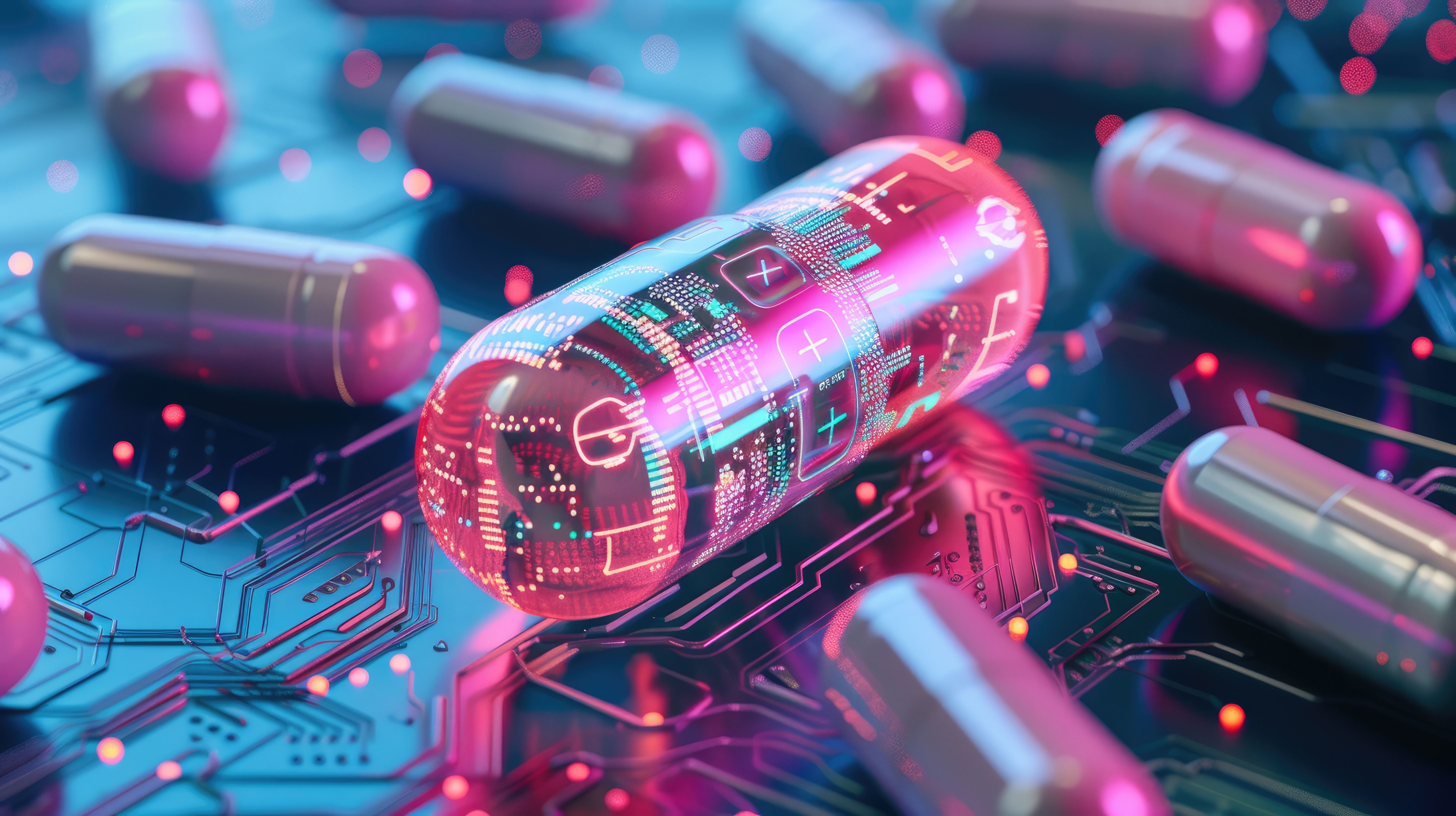- Bone Health
- Immunology
- Hematology
- Respiratory
- Dermatology
- Diabetes
- Gastroenterology
- Neurology
- Oncology
- Ophthalmology
- Rare Disease
- Rheumatology
AI and Biosimilars: Bridging Global Health Disparities and Enhancing Treatment Efficiency
Artificial intelligence (AI) technologies can support global health systems in integrating biosimilars into care models, reducing health care costs, enhancing treatment decision-making strategies, and narrowing the gap between high-income and low- and middle-income countries.
Artificial intelligence (AI) technologies can aid global health systems in incorporating biosimilars into care models, lower health care costs, aid in treatment decision-making strategies, and bridge the gap between high-income and low- and middle-income nations, according to a review published in Pharmaceuticals (Basel).1
Conducted to address the evolving landscape of biosimilars following the expiration of patents for original biological drugs, the study explored the regulatory frameworks for biosimilars across 8 countries. Additionally, the study examined how AI could enhance biosimilar development, improve manufacturing efficiency, and ensure quality and safety. The authors said that their results are significant for understanding these dynamics and advancing the safe and effective use of biosimilars globally.
AI technologies can be used in several ways to improve health care and access to medications, including aiding in decision making strategies and helping health systems better manage the growing number of approved biosimilars and generics. | Image credit: _veiksme_ - stocka.adobe.com

“Strengthening international cooperation to support infrastructure and regulatory capacity in developing countries will allow them to fully benefit from biosimilars. This comprehensive approach will facilitate the global adoption of biosimilars, improve access to advanced treatments, and reduce healthcare costs…. Better education and favorable policies can increase the confidence and adoption of these medications among healthcare professionals,” wrote the authors.
The researche investigated 3 key aspects of successful biosimilar development in a global context. First, they examined the regulatory frameworks for biosimilars in 8 countries across 4 continents—Japan, the Republic of Korea, the US, Canada, Brazil, Argentina, Australia, and South Africa. It highlighted challenges such as complex approval processes and the lack of standardized guidelines, noting inconsistencies between high-income and low- and middle-income countries. Second, it explored the application of various AI modeling methods to analyze patterns in biosimilar use, particularly in cancer treatment, using machine learning and spectroscopy. Finally, it reviewed the use of FDA and European Medicines Agency–approved biosimilar compounds in oncology.
The literature review was conducted using 9 databases, followed by a meta-analysis. In the initial phase, a repository of 586 documents was compiled, including journal articles, reviews, books, chapters, and conference proceedings. Although representative, the authors noted that the sample did not cover all existing literature on the topic of biosimilars in the consulted databases.
The integration of smart technologies, particularly AI and internet of things (IoT), is transforming the biosimilar drug development process. AI enhances efficiency and accuracy by analyzing vast biological data, predicting molecular behaviors, and optimizing trial designs. It accelerates the identification of predictive biomarkers, improving clinical trial design and data analysis. IoT monitors and controls biosimilar production, ensuring quality and consistency through real-time data.
AI-driven methodologies, such as in silico modeling and machine learning, predict the biological activity and higher-order structure of biosimilars, facilitating comparisons with reference products. AI also aids in pharmacovigilance by detecting rare adverse events and comparing them with reference drugs, and supports the creation of collaborative platforms for global adverse event reporting.
Natural language processing (NLP) further enhances biosimilar development by analyzing scientific literature and regulatory documents to extract relevant information, improving development strategies and compliance. Overall, these technologies streamline and refine biosimilar development, making the process faster, more cost-effective, and precise.
The study identified challenges in implementing AI in biosimilar development, including the need for large high-quality data sets, data privacy concerns, and careful interpretation of AI results. Regulatory acceptance of AI techniques was still evolving, requiring ongoing dialogue between developers and regulators. Despite these challenges, AI held significant potential to enhance the efficacy, safety, and accessibility of biosimilars.
The authors highlighted an artificial intelligence-based clinical decision support system that will assist health care professionals in making personalized treatment decisions and help health systems integrate biosimilars effectively. This AI model aims to compare the outcomes of biosimilars with their originator products, helping determine if switching is suitable for individual patients and broader populations. The model will use extensive clinical data, including patient demographics, disease details, treatment history, and outcomes, while considering the pharmacokinetics and pharmacodynamics of both biosimilars and originators.
Additionally, the FDA has introduced an AI-based model that characterizes how protein aggregation could directly impact the safety assurance of biosimilars and other therapeutic proteins and help demonstrate biosimilarity for these lower-cost products.2
The authors concluded, “The development and adoption of biosimilars is crucial to providing high-quality, affordable health care solutions worldwide. Implementing harmonized regulatory frameworks, using artificial intelligence technologies, and promoting clinical evidence are essential steps to realize the full potential of biosimilars to improve public health outcomes.”
References
1. Bas TG, Duarte V. Biosimilars in the era of artificial intelligence—international regulations and the use in oncological treatments. Pharmaceuticals (Basel). 2024;17(7):925. doi:10.3390/ph17070925
2. Niazi SK. Contributor: FDA introduces new AI-based safety evaluation tool to help demonstrate biosimilarity. The Center for Biosimilars®. March 14, 2023. Accessed August 8, 2024. https://www.centerforbiosimilars.com/view/contributor-fda-introduces-new-ai-based-safety-evaluation-tool-to-help-demonstrate-biosimilarity
Escaping the Void: All Things Biosimilars With Craig & G
May 4th 2025To close out the Festival of Biologics, Craig Burton and Giuseppe Randazzo from the Association for Accessible Medicines and the Biosimilars Council tackle the current biosimilar landscape and how the industry can emerge from the "biosimilar void."
How AI Can Help Address Cost-Related Nonadherence to Biologic, Biosimilar Treatment
March 9th 2025Despite saving billions, biosimilars still account for only a small share of the biologics market—what's standing in the way of broader adoption and how can artificial intelligence (AI) help change that?
